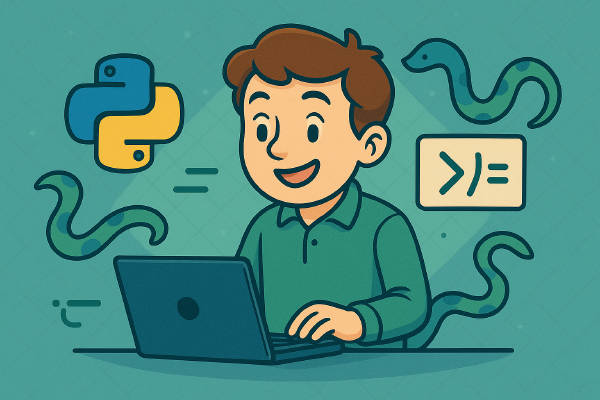Today is my third day attending PyCon LT 2025: AI and ML Day, focusing on LLMs and Neural Networks.
The full schedule can be found here: PyCon LT 2025
AI is developing rapidly, and I wanted to take this opportunity to listen to discussions about it. Although I had to return to the company to handle work in the afternoon, and only attended the morning sessions, I still gained a lot.
My main takeaway is that AI has become a technology that everyone must learn and apply.
A Simple Log of Today’s Experiences#
I arrived at the venue again at around nine o’clock this morning. After grabbing a coffee, I went straight into the first talk.
The first talk was titled “Open-source Multimodal AI”. The speaker was from France and a member of the Hugging Face team. Many of you might have seen this emoji 🤗—they are the developers of the well-known Transformers and Diffusers open-source libraries. They also have the Hugging Face Hub website where users can upload, share, and download various AI models and datasets. This presentation mainly shared the content of multimodal AI, introducing some background knowledge, related libraries, basic APIs of multimodal and open-source AI, how to start using open-source models, and some currently popular open-source models.
The second talk was “Knowledge Bases & Memory for Agentic AI”, introducing the origins of Agent AI (Agentic AI). The presentation covered how to design prompts to guide LLMs to use tools and plan solutions for complex queries; learning function calls, and how to utilize this LLM feature as the foundation of an Agent. The speaker was also a woman, from the Netherlands.
The third talk was “EGTL data-processing model prototype using Python”, which discussed how to add a “generation” step supported by generative AI to the traditional ETL (Extract, Transform, Load) process, expanding it to EGTL (Extract, Generate, Transform, Load). It demonstrated how a Python pipeline based on a data warehouse can automatically extract data, generate new insights, and achieve optimized transformations. It also explored practical workflows, real-world use cases, and best practices to help data projects apply the EGTL method.
The final talk of the morning was “AI 360: From Theory to Transformation”, which shared the development history of AI. From the dual perspectives of data and models, it reviewed the evolution of artificial intelligence, recounting the development from early symbolic systems to today’s advanced data-driven techniques. Attendees learned how the growing datasets and increasingly complex model architectures interact to propel AI from a theoretical curiosity to a global innovation catalyst.
I left after lunch because I had to return to the company for work in the afternoon.
Inspiration#
I listened to several talks today, and the proportion of female speakers was still quite high. The first two speakers were particularly good, with clear logic and strong delivery.
Today’s AI-focused topics made me realize one thing: AI development waits for no one. Anyone still watching and hesitating is already falling behind. The only way out is to embrace it as soon as possible, instead of wasting time resisting or doubting it.
Frankly speaking, the most important thing to do now is not to learn how to “use” AI, but rather to ask the reverse question: What tasks should be redone by AI? Your entire past workflow may already be inefficient; it’s just that AI hasn’t had a chance to overhaul it yet.
Incidentally, 99% of AI courses on the market are essentially a scam—they use DeepSeek, ChatGPT to extract some information, put it into a Notion template, and then sell it to you. It seems like they’re teaching you to use AI, but essentially they are “using AI to teach you to pay money”.
What you should really be doing is focusing on your industry and job, and seriously considering two questions: Is AI replacing my job? Can I use AI to achieve better results than others?
Summary#
This is a simple record of my participation in the third day of PyCon.
Overall, this PyCon LT trip was very worthwhile. Although I didn’t gain many specific technical details, hearing from my peers, whether from a technical perspective or in terms of interpersonal communication, was valuable.
I also attended the conference with several colleagues, which allowed for more in-depth exchanges, a very rare opportunity.
If I have the opportunity to attend PyCon again in the future, I hope to focus more on core projects like CPython and PyPA, and also hope to learn more about DevOps and AI-related topics.
I’ll share my PyCon notes here. Looking forward to seeing you next time!
Please indicate the author and source when reprinting this article, and do not use it for any commercial purposes. Welcome to follow the WeChat official account “DevOps攻城狮” (DevOps Siege Lion)






